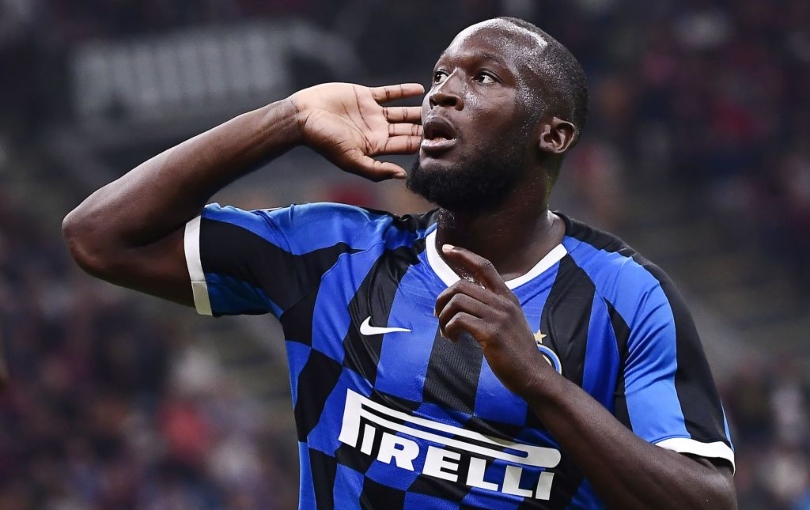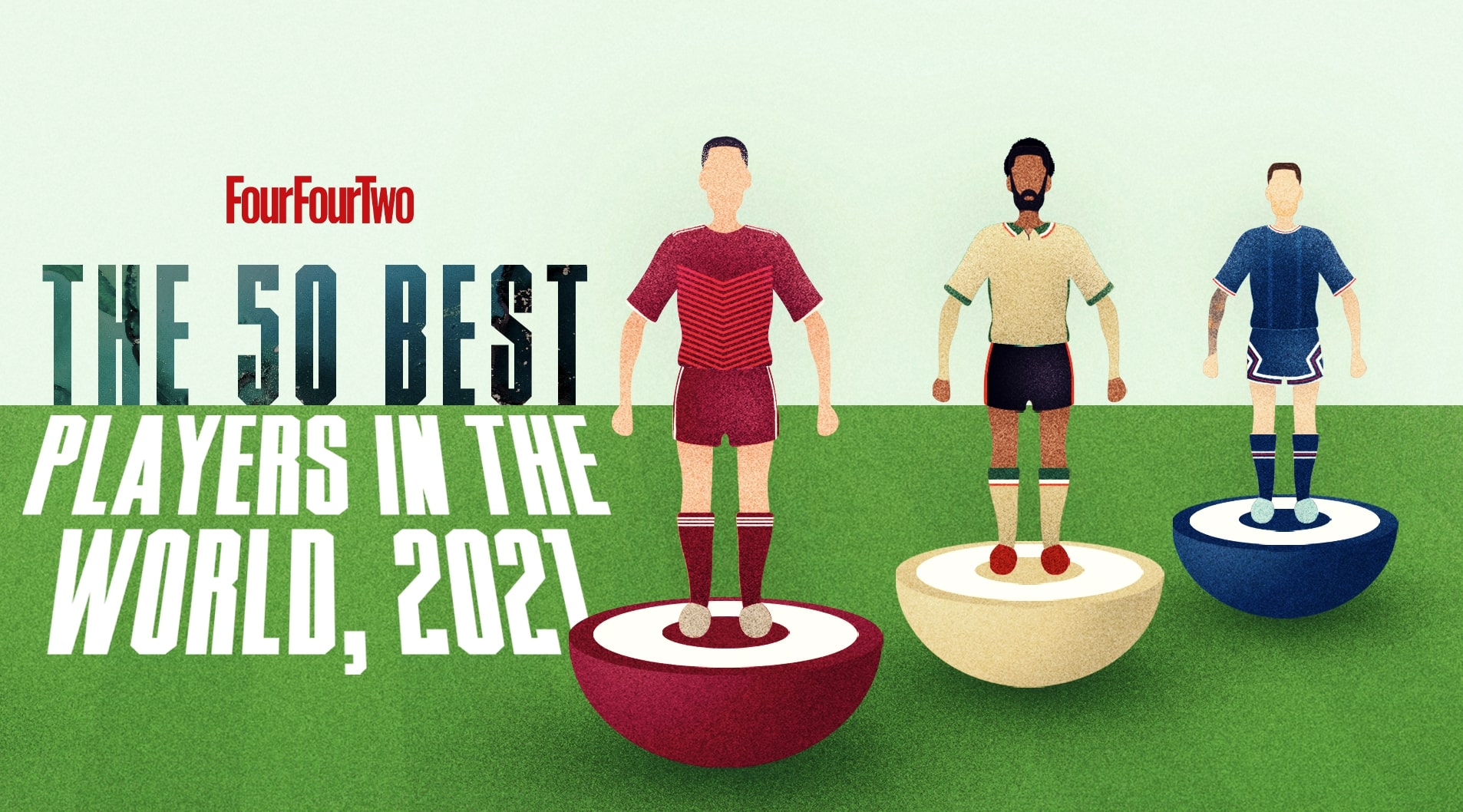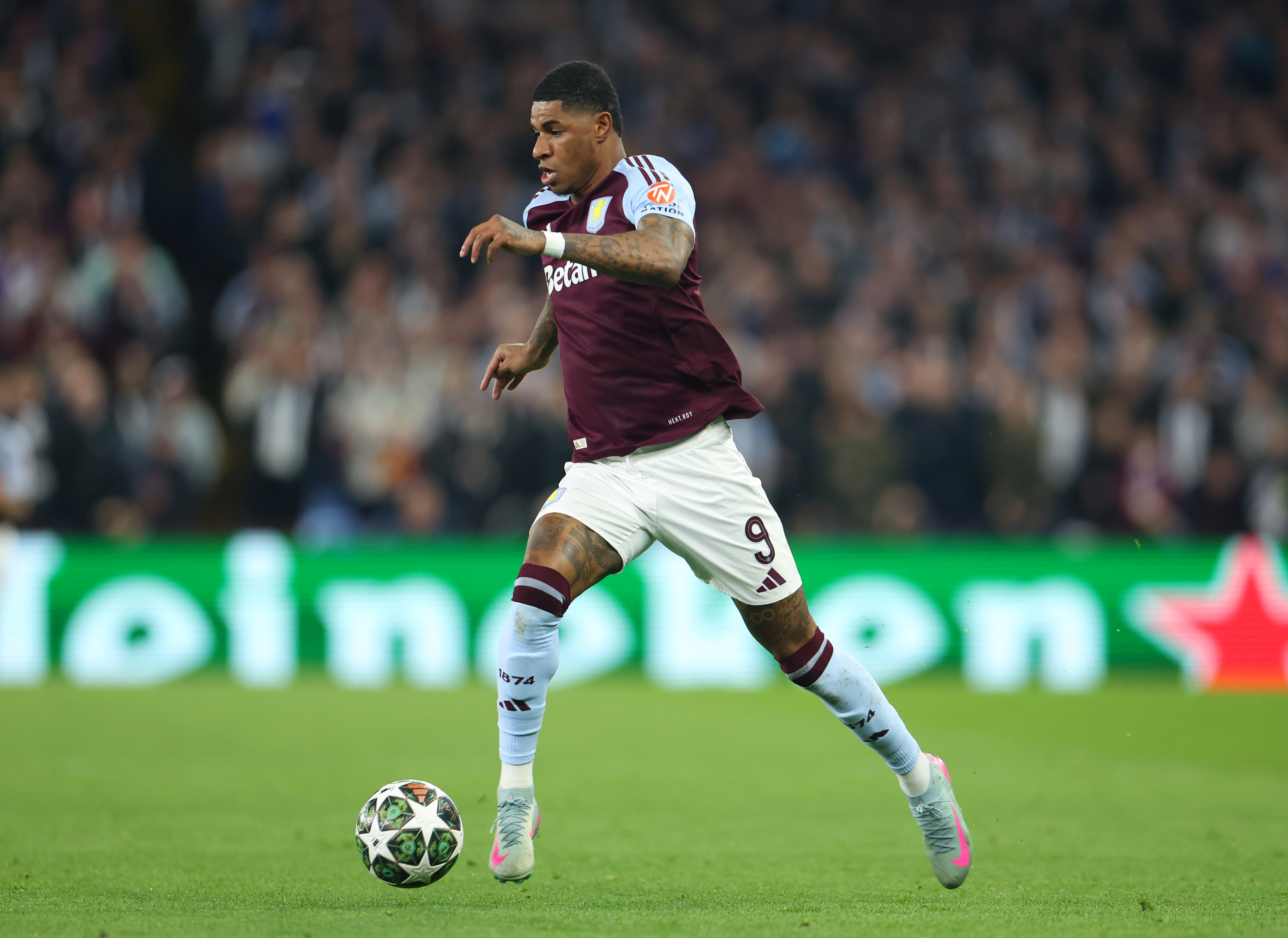How Romelu Lukaku's time at Inter re-made the Belgian striker into one of the world's best goalscorers
Romelu Lukaku has been named on FourFourTwo's list of the world's best players after a year that brought a Serie A title and a £98m move to Chelsea

This feature on Romelu Lukaku first appeared in the October 2021 issue of FourFourTwo magazine. Subscribe now and never miss an issue!
Romelu Lukaku was nine years old when the Brazilian Ronaldo left Inter in 2002 – but the sight of Il Fenomeno bearing down on hapless defenders remained with the Belgian in his formative years.
So, when newly installed Nerazzurri coach Antonio Conte came calling in the summer of 2019, the forward immediately wanted in. It felt like destiny.
Conte had tried to sign Lukaku at Juventus five years earlier, and the Turin giants were in direct competition with Inter for a second time: offering Paulo Dybala as part of a swap deal and keen to see how the talisman would team up with Cristiano Ronaldo. Inter’s first bid had been turned down, but Manchester United encouraged them to give it another go. Eventually, an €80 million fee was agreed.

Lukaku – who has been named no.13 in FourFourTwo's list of the best players in the world 2021 – didn’t waste time trying to woo his new fanbase with swooning talk of the club, its traditions and history. All to be expected, of course, but the striker delivered his patter with a conviction that went way beyond the usual PR guff. The Interisti responded in kind, rallying around their latest signing as a player who just got what the club meant – someone to genuinely believe in, rather than an expensive cast-off who hadn’t quite fulfilled his promise at Old Trafford.
Lukaku thrived on the attention, too. Conte (himself on FFT's best managers in the world list) gave him former captain Mauro Icardi’s No.9 jersey and they commenced a mutually beneficial working relationship: both coach and player motivated each other, and noticed plenty of common ground when it came to understanding the driven mindset of champions.
In England, much has been made about the 28-year-old’s slimmed-down body shape. In reality, it’s his mental transformation as much as a physical one which could prove more telling back at Chelsea. Settling in at Inter, Lukaku found himself at a club where people would truly listen to him – and he loved it. Exhorting team-mates on the pitch and in the press to work harder, he became Conte’s representative on the other side of the white line; a focal point for an altogether more intense unit.
Get FourFourTwo Newsletter
The best features, fun and footballing quizzes, straight to your inbox every week.
The Belgian repaid the former Blues boss with 64 goals in 95 games over two seasons, beating Ronaldo’s haul of 50 in 77 wearing an Inter shirt. ‘Grande Lu-La’ even reached that target in seven games fewer.
Chelsea are set to sign Romelu Lukaku from Inter Milan for a reported £97.5m fee 🔵He scored 64 goals in 95 games, and became a Serie A winner during his time in Italy 📈pic.twitter.com/LgDG3CfJtdAugust 7, 2021
Unsurprisingly with that in mind, he hit the ground running. Lukaku bagged on his debut in Inter’s 4-0 home win against Lecce, then netted from the penalty spot as Conte’s men dispatched Cagliari. The locals in Sardinia had singled him out for abuse from the get-go – par for the course with a headline signing – but things turned progressively uglier. By the time Lukaku converted that winning penalty, he was greeted with a sustained, nauseating soundtrack of racist chanting – not only from the home curva but all sides of the ground, bar the away support.
Later that evening, the Nerazzurri’s new marksman called on football authorities and social networks alike to do something beyond the usual hand-wringing. “This is 2019,” he said on Instagram. “Instead of going forward, we’re going backwards.” Coming a year after Moise Kean had suffered similar abuse at the same stadium while playing for Juve, it was a powerful statement from a player unafraid to speak out in a country where any hint of non-footballing opinion is often treated with discomfort at best.
Inter finished one point behind champions Juventus in Lukaku’s opening season and lost the Europa League final 3-2 to Sevilla, after he had become the first player since Cristiano Ronaldo to score in six consecutive European knockout games. Close, but no cigar.
Both he and Conte were desperate to step things up seriously. Hindsight being the great thing it is, perhaps there was an underlying sense that they wouldn’t get many better opportunities to do so than in 2020/21.
They would have been quite right, as well. Inter set off at a ferocious pace in Serie A and barely let up, except for a few hiccups midway through. Lukaku formed a hugely profitable partnership with Lautaro Martinez, who rejected moves to Spain so that he could continue playing with his exceptional accomplice. The Belgian became adept at little lay-offs with his back to goal (Arsenal didn’t get that memo when he faced them recently), shrugging off defenders and bringing team-mates into play. It was something Conte had been very keen to exploit, and the coach’s belief and enthusiasm made Lukaku a more complete striker. Suddenly, there was movement with purpose, speed, power and awareness.
Inter embarrassingly came bottom of their Champions League group after two draws with Shakhtar Donetsk – thus failing to even slip into the Europa League – but proved they weren’t a side to be pushed around.
No one proved it better than Lukaku. During a Coppa Italia quarter-final against city rivals Milan in January, the striker wasn’t in the best of moods after missing an earlier opportunity. When furious words were exchanged amid an altercation with famous wallflower Zlatan Ibrahimovic, the Swede let loose with a volley of abuse that included telling his adversary to “go do your voodoo s**t” and “call your mother”. An apoplectic Lukaku responded by calling Ibra a “little bitch”. Ibrahimovic was later sent off in Inter’s 2-1 win and insisted afterwards that their dust-up was nothing personal, but the former United colleagues continue to make indirect digs at each other on social media.
Not that it knocked the Belgian off his stride. In early May, with four games still to play, a 2-0 success at Crotone and results elsewhere sealed Inter’s first championship since Jose Mourinho’s tripletta 11 years ago, finally putting an end to Juve’s scudetto streak stretching back to 2011/12.
However, a month later Conte had moved on, hinting at deeper problems with the club’s unpredictable finances despite an estimated €23.4m windfall from a fresh television rights agreement. Lukaku, who had publicly called on his manager to stay put, may well have been swayed in his decision to follow him out of the departure door.
Whatever the thinking, fans reacted angrily by echoing the bitter exit of Lukaku’s icon Ronaldo some two decades earlier. Time has healed the fallout between Il Fenomeno and the vexed Nerazzurri faithful, but a mural of the Belgian outside San Siro was defaced prior to his west London return, with the word traditore (traitor) writ large. It proved among the most popular (and polite) profanities used for the Brazilian throughout his spells at Real Madrid and Milan.
Lukaku, while lacking the graceful menace of his predecessor, could have continued to eclipse Ronaldo. Certainly, Inter fans in the late ’90s would have gladly traded their 1998 UEFA Cup triumph for a scudetto – especially if it came at Juve’s expense.
It’s exactly why those Nerazzurri supporters are feeling betrayed. A moment has passed, one in which Lukaku played such a vital role, and the opportunity for a new era of glory has seemingly been snatched away. Despite sitting top of Serie A at the halfway point this year, the coming months will doubtlessly reveal more painful truths about Inter’s financial wellbeing. That will be no consolation for those watching their former star use his San Siro learnings to another team’s benefit.
In the meantime, there’s just one truth that matters for Romelu Lukaku. His Italian job is over; redemption at Stamford Bridge awaits.
Subscribe to FourFourTwo today and save over a third on standard price.
NOW READ...
RANKED The 50 best managers in the world
Matt Barker is a freelance journalist and regular feature contributor to FourFourTwo magazine. He specialises in Serie A and Italian football, has interviewed players including Michael Owen and Gianluigi Buffon, as well as covering stories such as Silvio Berlusconi's purchase of AC Milan, and Ronaldo's injury-plagued time at Inter Milan at the turn of the century.
